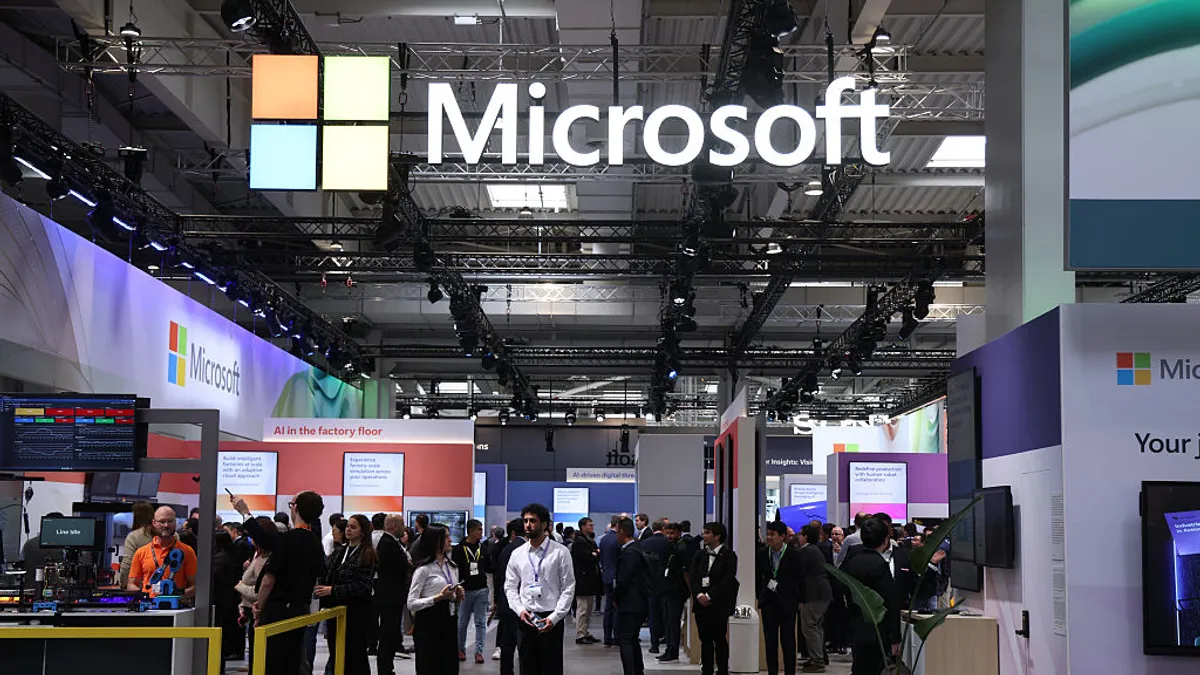Dive Brief:
- Microsoft expects its capital expenditures for its current quarter to exceed $30 billion, driven by “the continued strong demand signals” the software giant is seeing, CFO Amy Hood said Wednesday.
- The remarks came as the company reported $281.7 billion in total revenues for its last fiscal year ended June 30, a 15% year-over-year spike. For the current fiscal year, Microsoft anticipates that it will deliver “another year of double-digit revenue and operating income growth,” according to Hood.
- “We will continue to invest against the expansive opportunity ahead across both capital expenditures and operating expenses given our leadership position in commercial cloud, strong demand signals for our cloud and AI offerings, and significant contracted backlog,” she said during an earnings call.
Dive Insight:
On the heels of the better-than-expected quarterly earnings, Microsoft’s stock price jumped 5% on Thursday, pushing the company's valuation beyond the $4 trillion mark, according to a CNBC report.
The company joined chipmaker Nvidia, which hit $4 trillion for the first time earlier in July, the report said.
“If this growth is maintained, it significantly reduces the risk that Microsoft would need to rethink its massive AI-related CAPEX, even if competitive pressure increases,” Thomas Monteiro, senior analyst at Investing.com, said in emailed comments.
“In other words, the company’s ability to balance heavy AI investment with margin expansion shows it can scale efficiently into FY26, regardless of external challenges,” he added.
Microsoft and other tech giants continue to bet heavily on AI as investors eagerly look for signs that its paying off. Meanwhile, economic uncertainty triggered by President Donald Trump’s on-again, off-again tariff measures has created added pressure for big tech firms.
For its fiscal 2025 third quarter ended March 31, Microsoft’s capex, including finance leases, totaled $21.4 billion. That amount was “slightly lower than expected due to normal variability from the timing of delivery of data center leases,” Hood said during an earnings call in late April.
At the time, Hood said Microsoft expected its capex to grow at a slower pace in its upcoming fiscal year starting in July. This came after the company confirmed a pullback in AI data center projects.
The company’s capex during its most recent quarter was $24.2 billion, Hood said on Wednesday.
Reiterating comments she made earlier this year, Hood said Microsoft’s capex growth in the current fiscal year will moderate. “Due to the timing of delivery of additional capacity in H1, including large finance lease sites, we expect growth rates in H1 will be higher than in H2,” the finance chief said.















